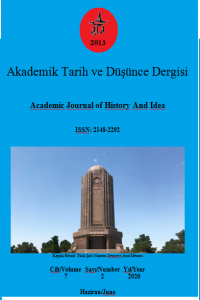461 Numaralı Elbistan Şerʽiyye Siciline Göre Elbistan (1892-1900)
Tarih boyunca bir arada yaşamak
durumunda olan insanların huzur, sükûn ve sürur içinde yaşayabilmeleri,
güçsüzlerin güçlüler karşında korunması, hak ve görevlerin belirlenmesi vb.
konuların açıklığa kavuşması için hukuk denilen bir müessese oluşturulmuştur.
Osmanlı Devleti’nin de hâkim olduğu geniş coğrafyada altı buçuk asra yakın
uyguladığı bir hukuk nizamı vardır. Osmanlılar bu sistemle üç kıtada çok
çeşitli etnik köken, dil, din, mezhep vb. birçok farklılıklar arz eden insan
topluluklarını adaletle bir arada yaşatabilmişler, hatta kendilerinden sonra
bir daha o coğrafyalarda öyle bir nizam (Pax Ottoman) tesis edilememiştir.
Osmanlı hukuku şerʽî hukukun yanında örfi hukuk ve hâkimiyet altına alınan
devletlerin hukuk kurallarının kendisininki ile tezat oluşturmayanlarının
birleşiminden oluşan bir hukuktur. Bu sentezin ana gövdesini oluşturan şerʽî
hukukun en önemli ögesi Şerʽî Mahkemeler, bu mahkemelerin en önemli unsuru ise
kadılardır. Kadıların tuttuğu Şerʽiyye Sicilleri de yaklaşık beş yüz yıllık
dönem için tarafsız, eşi bulunmaz belgelerdir.Bu çalışma ile Elbistan’ın XIX.
asrın son yıllarındaki sosyal, kültürel, malî, etnik, dinî durumu, kişilerin
hukuki ilişkileri, müslim-gayri-müslim münasebetleri v.b. durumlarına dönemin
orijinal kaynaklarından o-lan 461 numaralı kadı sicilindeki bilgiler
incelenerek ışık tutulmaya çalışıacaktır.
Elbıstan Accordıng to 461 Number Court Record (1892-1900)
People
who have to live together throughout history can live in peace, quietness and
purity, protection of the weak against strong power, determination of rights
and duties, and so on. an institution called law was established in order to
bring the issues to the open. There is a legal order in the wide geography
where the Ottoman Empire is also a judge, practicing in close to six and a half
centuries. With this system, the Ottomans had a wide variety of ethnic
backgrounds, languages, religions, sects and so on. (Pax Ottoman) could not be
established in those geographies again after themselves. The Ottoman law is
composed of the combination of the laws that are under the jurisprudence of the
states and the ones which do not contrast with the rules of the law itself. The
most important element of the Shari'i law, which forms the main body of the
synthesis, is the Shari'i courts, and the most important element of these
courts is the women. Shari'a records kept by the ladies are also neutral,
unparalleled documents for a period of about five hundred years.With this work
Elbistan's XIX. social, cultural, financial, ethnic, religious status of the last
years of the century, legal relations of persons, Muslim-non-Muslim relations
etc. will be tried to keep the light by examining the information in the
register of the kadi number 461 from the original sources of the period. There
have been many previous studies on the Elbistan Court Registers.
___
- EKİNCİ, E.B., Tanzimat ve Sonrası Osmanlı Mahkemeleri, İstanbul: Arı Sanat Yayınları, 2004.
- KARAL, E. Z., Osmanlı Tarihi, Ankara: Türk Tarih Kurumu Yayınevi, 1986.
- KORKARER, F., 452 Numaralı Elbistan Şer’iyye Sicilleri H.1284-1288/M.1868-1871, Yüksek Lisans Tezi, Kahramanmaraş Sütçü İmam Üniversitesi, 2002.
- MARSHALL, T. W. M. Les Missions Chrétiennes, çev. Louis de Waziers, Paris: Libraire Editeur, 1865.
- ÖZKARCI, A., 452 Numaralı Elbistan Şer’iyye Sicilleri H.1284-1288/M.1868-1871, Yüksek Lisans Tezi, Kahraman Maraş Sütçü İmam Üniversitesi, 2004.
- ÖZTÜRK, S., Osmanlı Salnâmelerinde Maraş Sancağı 1284-1326 /1867-1908, İstanbul: Düzey Yayınları, 2006.
- Yayın Aralığı: Yılda 6 Sayı
- Başlangıç: 2013
- Yayıncı: Hakan YILMAZ
Sayıdaki Diğer Makaleler
Başbakanlık Cumhuriyet Arşivi Belgelerinde Mustafa Kemal Atatürk’ün Vefatının Kamuoyuna Yansımaları
XX Əsrin II. Yarisinda Azərbaycanda Ədəbi Proses və Söhrab Tahirin Yaradiciliği
Türk Vergi Kültürüne Etkisi Açısından Türk Vergi Uygulamaları Tarihine Kısa Bir Bakış
Geçmişten Günümüze Münâfıkların Değişmeyen Faaliyetleri (Asr-ı Saadet ve Nifâk Eylemleri)
Tasavvufî Metinlerde Hayvanların Çeşitli Yönlerini İnceleme
Cumhuriyetin Biyografik Temellerinden: Mehmet Sabri Toprak*
Baudelaire Üzerine Benjamin ve Sartre
Türk ve Slav Kültüründe Siyah Renk
461 Numaralı Elbistan Şerʽiyye Siciline Göre Elbistan (1892-1900)
19. Yüzyıl Ortalarında Alaşehir Kazası’nda Eğitim ve Eğitim Kurumları
